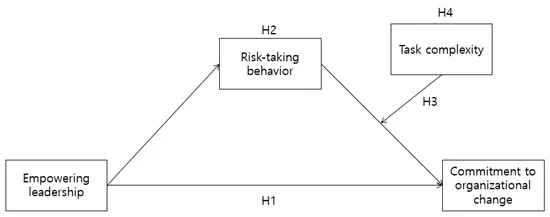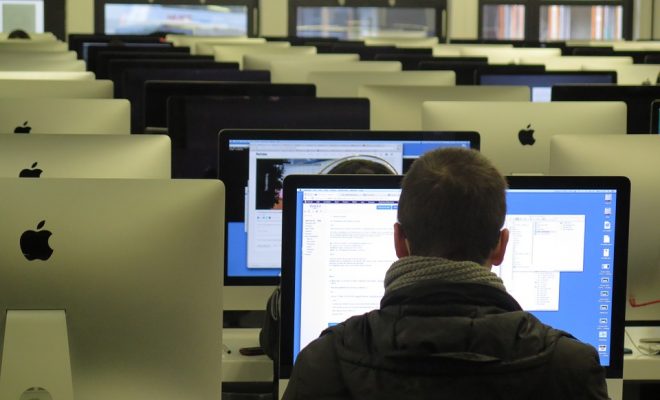5 Leadership Styles that Can Transform Education As We Know It

When considering school reform, it’s often easy to think of factors such as who is responsible (teachers, parents, school systems, the government?), or of funding issues such as the fact that 23 states spend less on poor schools than on more affluent schools.
Of course all the obvious factors are important. But what about leadership? Not just who is leading the change, but how. Fortunately, when it comes to developing an ideal for effective leadership, there’s no need to invent the wheel. There are several leadership styles that prominent leaders in any school reform movement can choose to embody. Here are five of them:
- Constructivist Leadership
The theory of social constructivism tells us that social worlds develop out of individuals’ interactions with their culture and society. Putting it simply, every interaction between people is an opportunity to expand one’s knowledge base.
Any educator who wants to apply social constructivism theories to education needs to reframe his point of view. He is no longer a “person who teaches” but is rather a “facilitator of learning.” A good constructivist teacher questions students’ answers, without regard to whether they are right or wrong, to make sure the student has a good grasp of the concept. Additionally, instructors should have their students explain the answers they give and not allow students to use words or equations without explanations. They should also encourage students to reflect on their answers.
Constructivism is by nature a shared experience. Constructivist learning attaches as much meaning to the process of learning as it does to the acquisition of new knowledge. In other words, the journey is just as important as the destination.
- Transformational Leadership
Transformational leadership is all about perception. It only works if it is able to influence the follower’s feelings. But when it works, it really works! Charismatic and inspiring, transformational leaders are well versed in the power of language and imagery.
The positive connection between transformational leadership and job satisfaction is so strong, we should almost expect an opposite result in organizations that do not take advantage of this unique leadership style. A leader, such as a principal or dean, who switches to a transformational style needs to understand how she can influence how tasks are perceived among her followers.
Transformational leadership is so powerful that research has shown that transformational leaders are appreciated around the world. Research has also shown that transformational leaders inspire their followers by making them feel like they are autonomous and important to the larger cause.
Although transformational leadership is considered superior, there is one big drawback: a lot of people have a hard time embody the charismatic individual this style requires. No need to worry, though—there are other effective leadership models to consider.
- Distributed Leadership
Unlike other leadership styles, this model places its focus on tasks rather than on the qualities of the individual leader.
Two are two reasons distributed leadership came into prominence in the first place. First is the highly delicate nature of the “charismatic hero” that is the symbol of transformational leadership. Second of all, school leaders now have to handle tasks of greater complexity. The heroic leader is overrated—it’s the mundane, everyday activities that make the difference.
The interesting thing about distributed leadership is that it already works with how most public entities handle their affairs. Government does, after all, construct a goal that would require both school and non-school actors to distribute their efforts so that they can achieve this goal. This leadership models also works well when different organizations need to cooperate in their work-related goals.
There are a few leadership styles, such as transformational leadership, that are a part of a cultural movement toward considering the role of emotions in motivating people. However, the present focus on distributed leadership has a slightly different focus, one that is geared toward the weakening of traditional logic. Organized social structure, as a result, has given way to a “network culture.”
These new changes also indicate a change in the knowledge economy. We have begun to see a form of “socialism” in education, proven by the use of terms such as “universal education” to symbolize the trend toward viewing education as something other than a market commodity in this age. Governments around the world are set on creating a policy that ensures that literacy is achieved by all. The role of the school leader is therefore shifting from economic management to social management.
- Invitational Leadership
Created by William Purkey and Betty Siegel, invitational leadership blends several leadership qualities, values, and principles. They described the model as shifting from emphasizing control and dominance to focusing on connectedness, cooperation, and communication.
Invitational leadership aims at “inviting” all interested stakeholders to succeed. It involves sending positive messages to people, making them feel are valued, able, responsible, and worthwhile. The messages are often delivered through the institution’s policies, programs, practices, and physical environments. These are referred to as the five Ps of invitational leadership.
When implemented in the educational setting, the elements of invitational leadership combine to create an environment that is cohesive, efficient, and conducive to learning. Invitational leaders “invite” everyone who has a stake in the success of the school to participate, and synergy is generated as all work toward a common goal.
- Strategic Leadership
Strategy involves decision-making aimed at shaping the direction of the organization. In a school, creating strategy takes time, three to five years and beyond. Strategy also includes considering broader core issues and themes for development in the school, instead of day-to-day issues.
Strategic leadership defines the vision and moral purpose of the school and translates them into the desired action. In their analysis of data from interviews with leaders possessing high-level strategic skills, Davies, Davies, and Ellison (2005) found that strategic leaders participate in five main activities.
They set the direction of the school and translate their plans into action. They also align the people, the organization, and the strategy. They execute their planned changes at the right time, and they develop strategic capabilities in the school.
If leaders develop strategic abilities, they would achieve more, in the form of a reflective-learning culture in teaching staff, a no-blame problem-solving approach, and a deeper understanding of learning.
What do you think of these five leadership models? Are there better ones? Do you believe we should place an emphasis on leadership style as an important tool in education reform?
References
Transformational leadership is a theory of leadership that was developed by James Burns (1978), and has been written about by many other scholars since then. To read more of James Burns’ work on transformational leadership and other topics, click here to visit his Amazon.com page.





